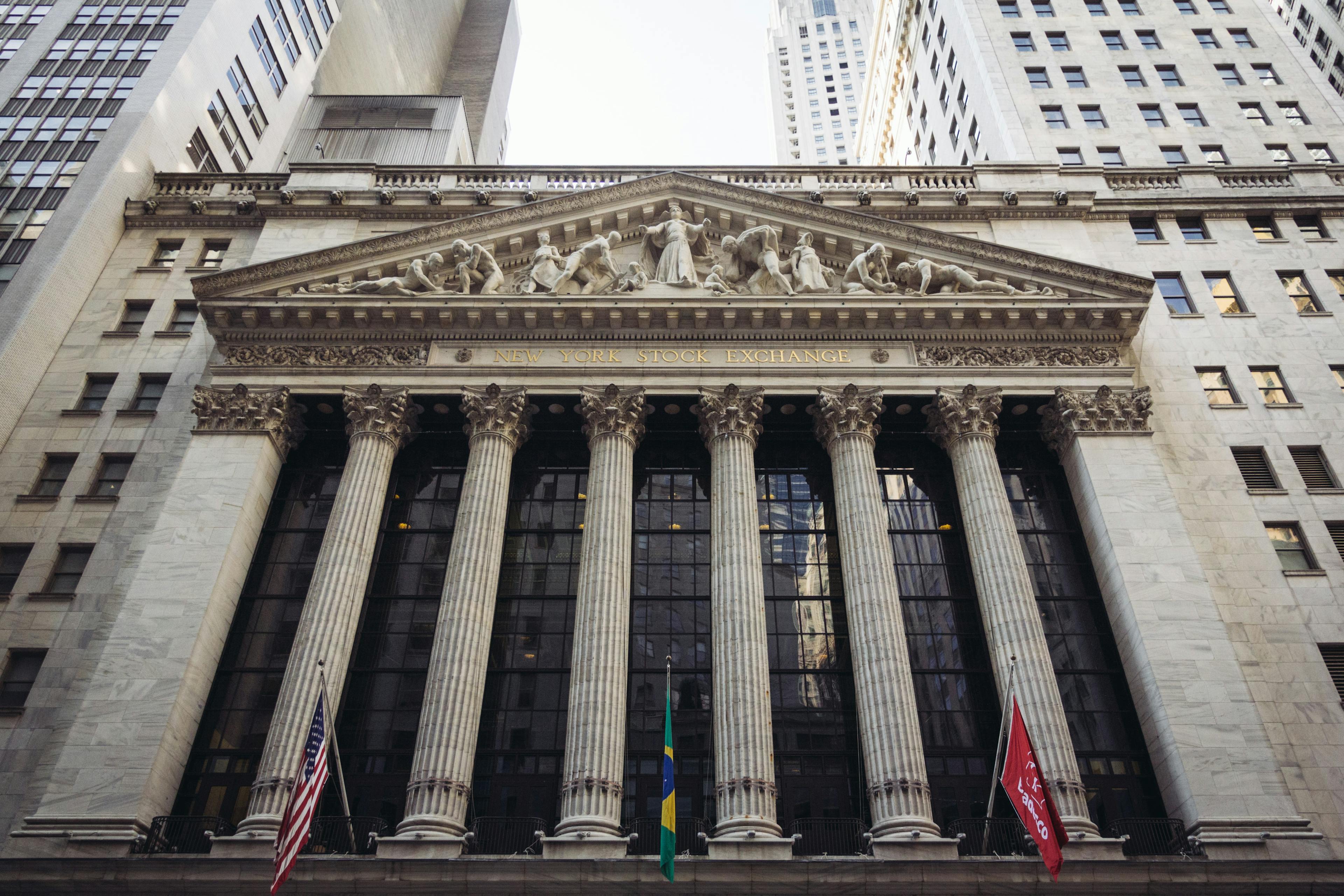Economic uncertainty raises difficult questions for prospective homebuyers. Should you wait out a market downturn, or could challenging economic conditions actually present opportunity? This comprehensive guide examines historical data, expert analysis, and practical strategies to help you make an informed decision about purchasing real estate during a recession or market correction.
Understanding Recessions and the Housing Market
A recession is officially defined as a significant economic decline lasting at least two consecutive quarters, marked by negative gross domestic product (GDP) growth. The National Bureau of Economic Research's Business Cycle Dating Committee makes the official determination, considering factors including unemployment rates, consumer spending, retail sales, and industrial production alongside GDP data.
What many prospective buyers fail to recognize is that recessions and housing market crashes are not synonymous. While the 2008 financial crisis created a lasting association between economic downturns and plummeting home values, historical data tells a more nuanced story.
Research from Harvard's Joint Center for Housing Studies reveals that housing production and sales typically decline during recessions, with starts falling an average of 20 percent in recessionary quarters since 1960. However, real home prices declined just 5 percent on average during recessions since 1980, with the 2008 crisis representing a dramatic outlier driven by specific circumstances including subprime lending practices and financial system vulnerabilities.
Navigate Any Market with Confidence
Whether you're buying during a boom or downturn, working with a top-performing agent who understands market cycles can make all the difference. Our vetted agents have helped clients achieve an average of $12,000 in savings through skilled negotiations.
Find a Top-Performing AgentHistorical Home Price Performance During Recessions
Understanding how real estate has performed during past economic contractions provides essential context for today's buyers. The data reveals surprising resilience in home values across most recessionary periods.
Home Price Changes During U.S. Recessions Since 1980
Source: CoreLogic, Federal Reserve Economic Data, National Association of REALTORS
The 2008 recession stands as an anomaly driven by a perfect storm of risky subprime mortgages, overbuilding, and systemic financial vulnerabilities. The 2001 dot-com recession actually saw robust home price appreciation as investors shifted from volatile tech stocks to tangible real estate assets. Similarly, despite the sharp economic contraction during the 2020 pandemic recession, home prices surged due to historically low mortgage rates and supply constraints.
Key Insight
A recession is not the same as a housing crash. Historical data shows home prices typically follow their existing trajectory during economic contractions rather than automatically declining. Local market conditions, inventory levels, and interest rate policies often matter more than recession labels.
How Mortgage Rates Behave During Economic Downturns
One of the most significant potential advantages of buying during a recession relates to mortgage financing costs. The Federal Reserve typically responds to economic weakness by lowering interest rates to stimulate activity, which often translates to more favorable mortgage terms for borrowers.
According to Fortune's analysis of Federal Reserve data, mortgage rates have fallen an average of 1.8 percentage points from peak to trough during the past five recessions. During the 2008 crisis, 30-year fixed rates dropped from approximately 6.7% to under 5% as the Fed implemented aggressive quantitative easing measures. The pandemic recession saw even more dramatic declines, with rates reaching historic lows near 2.65% by early 2021.
However, the relationship between Fed policy and mortgage rates is not direct. Mortgage rates correlate more closely with 10-year Treasury yields than the federal funds rate. The average spread between Fed rates and 30-year mortgages has been approximately 3 percentage points since the late 1980s. Market expectations, inflation concerns, and global economic conditions all influence this spread.
Rate Timing Considerations
Mortgage rates often begin declining before a recession is officially declared as markets anticipate Fed action. During the 2008 recession, rates had already fallen from 6.73% to 6.31% before the Fed's September 2007 rate cut announcement. Buyers waiting for official recession declarations may miss the most favorable financing windows.
Weighing the Pros and Cons
Purchasing real estate during an economic downturn presents distinct advantages and challenges. Your personal financial situation, risk tolerance, and local market dynamics should ultimately drive your decision.
Potential Advantages
- Reduced Competition: Fewer buyers in the market means less likelihood of bidding wars and more negotiating leverage
- Better Deals: Motivated sellers may accept lower offers or provide concessions on closing costs and repairs
- Lower Financing Costs: Fed rate cuts often translate to more affordable mortgage payments over the loan's lifetime
- Consistent Demand: People always need housing regardless of economic conditions, supporting long-term value stability
- Steady Rental Income: Investment properties can provide reliable cash flow as renters are less likely to purchase during downturns
- Long-term Appreciation Potential: Buyers who purchased during past downturns often realized significant equity gains during recovery periods
Potential Challenges
- Stricter Lending Requirements: Banks may tighten qualification standards, requiring higher credit scores and larger down payments
- Job Security Uncertainty: Economic downturns increase unemployment risk, which could jeopardize mortgage payments
- Reduced Inventory: Sellers may pull listings during downturns rather than accept lower prices, limiting selection
- Uncertain Recovery Timeline: Predicting when markets will rebound is difficult, potentially extending the period before equity gains materialize
- Increased Investor Competition: Well-capitalized investors often target downturn opportunities, competing with regular buyers
- Potential Value Declines: In severe or prolonged recessions, property values may decrease, creating negative equity situations
Current Market Conditions and Buyer Positioning
Today's housing market presents a unique landscape that differs significantly from previous recessionary periods. Understanding current fundamentals helps buyers assess whether recession concerns should alter their plans.
Current homeowner equity positions provide significant stability against potential price declines. According to ATTOM data, nearly half of all mortgaged homes are considered "equity rich," meaning loan balances represent less than half of property values. Analysis from Realtor.com suggests that even a hypothetical 10% home price decline would only return equity levels to 2021 figures, while a 20% drop would bring levels back to 2019.
The prevalence of low-rate mortgages among existing homeowners creates a "lock-in" effect that constrains inventory. With more than half of owners holding rates below 4%, few are willing to sell and finance a new purchase at current rates. This supply constraint provides a floor against dramatic price declines even if buyer demand weakens during an economic contraction.
Regional Variations Matter
Housing market conditions vary dramatically by location. Northeast markets like Rhode Island and New Jersey have seen equity gains exceeding $35,000 annually, while some Florida and Western markets have experienced declines. Work with a knowledgeable local agent who understands your specific market's dynamics and recession vulnerability.
Strategic Approaches for Downturn Buyers
If you decide to pursue homeownership during uncertain economic times, implementing the right strategies can help maximize advantages while minimizing risks.
Financial Preparation Checklist
Before Entering the Market
- Build emergency fund covering 6+ months of expenses including potential mortgage payments
- Strengthen credit score to qualify for best available rates
- Reduce debt-to-income ratio below lender thresholds
- Save for larger down payment to offset stricter lending requirements
- Get pre-approved to understand true purchasing power
- Assess job security and industry stability realistically
- Research local market conditions and price trends
- Identify backup income sources or contingency plans
Negotiation Leverage During Downturns
Economic uncertainty shifts negotiating dynamics in buyers' favor. Sellers who need to move face reduced competition for their properties, creating opportunities for price reductions and favorable terms. Experienced agents report that recession-period buyers often secure concessions that would be impossible during hot markets.
Price Negotiations
With fewer competing offers, buyers can submit below-asking prices and expect counteroffers rather than outright rejection. Properties with extended days-on-market present the strongest negotiating positions.
Seller Concessions
Request seller-paid closing costs, home warranties, or repair credits. Sellers facing carrying costs on vacant properties may prefer concessions over price reductions that affect comparable sales data.
Contingency Protections
During hot markets, buyers often waive inspection and financing contingencies to compete. Downturns allow reinstatement of these protections without losing offers.
Extended Timelines
Negotiate longer due diligence periods and closing windows to ensure thorough property evaluation and secure optimal financing terms.
Expert Guidance Makes the Difference
Top-performing agents understand how to leverage market conditions in your favor. EffectiveAgents connects you with vetted professionals based on actual transaction performance, not just reviews.
Get Matched with a Top AgentWhy 2008 Was Different (And Why It Likely Won't Repeat)
The 2008 housing crisis looms large in collective memory, leading many to assume any recession will produce similar devastation. Understanding why that period was exceptional helps calibrate realistic expectations for future downturns.
Unique Factors Behind the 2008 Crash
The housing bubble that burst in 2006-2007 resulted from a confluence of circumstances that don't exist in today's market. Subprime lending had expanded dramatically, with lenders offering mortgages to borrowers who couldn't afford them. These risky loans were packaged into securities that obscured their true danger, creating systemic financial vulnerabilities when defaults accelerated.
Home prices had more than doubled between 1998 and 2006, representing the sharpest increase in U.S. history. Mortgage debt rose from 61% of GDP in 1998 to 97% by 2006. When the bubble burst, foreclosures flooded the market with inventory, driving prices down further in a self-reinforcing cycle. The resulting financial crisis froze credit markets and triggered the deepest recession since the Great Depression.
Key Differences: 2008 vs. Today
Today's market fundamentals differ dramatically. Lending standards have tightened significantly, with average credit scores for new mortgages around 749. Homeowner equity positions are historically strong, and the share of underwater mortgages remains near all-time lows. Supply constraints from the lock-in effect provide natural price support that didn't exist when foreclosure inventory flooded the 2008-2011 market.
The Long-Term Perspective on Real Estate
Real estate decisions should be evaluated over appropriate time horizons. Short-term economic conditions matter less than long-term fundamentals for buyers planning to remain in properties for five years or more.
Housing's historical performance demonstrates resilience across economic cycles. People always need shelter, creating consistent baseline demand regardless of broader economic conditions. While non-essential spending contracts during recessions, housing remains a necessity that supports underlying property values.
Real estate also provides an inflation hedge that becomes particularly valuable during periods of economic uncertainty. As construction costs, land values, and replacement costs rise with inflation, existing property values tend to follow. This characteristic has made real estate a preferred asset class for preserving purchasing power across generations.
Recovery Patterns
Historical data from the Joint Center for Housing Studies shows that housing activity typically rebounds strongly following recessions. In the first two quarters of recoveries following the past eight recessions, housing starts increased an average of 12% year-over-year while new home sales rose 15%. Buyers who purchase during downturns often benefit most from these recovery dynamics.
When Waiting Might Make Sense
Despite the potential advantages of buying during uncertain times, some circumstances warrant caution or delay.
Consider Waiting If:
Your employment situation carries elevated risk. Industries facing structural disruption or companies showing financial stress create mortgage qualification and payment risks that outweigh potential purchase advantages. Job security should be honestly assessed before committing to a 30-year obligation.
Your emergency fund is inadequate. Financial experts recommend maintaining liquid reserves covering at least six months of expenses, including mortgage payments, before purchasing. During recessions, this buffer becomes even more critical as job losses become more common and finding new employment may take longer.
Local market conditions suggest further declines. While national trends show resilience, specific markets with oversupply, population outflows, or industry concentration may face steeper corrections. Research from local market analysis sources and work with agents who understand hyperlocal conditions.
You're purchasing for short-term gain. Buyers expecting to sell within two to three years face greater risk of unfavorable timing during economic uncertainty. Transaction costs including commissions and closing expenses require meaningful appreciation to break even, which may take longer during or following recessions.
Frequently Asked Questions
No. Historical data shows that home prices increased or remained stable in four of the last six U.S. recessions. The 2008 crisis was an exception driven by specific factors including subprime lending, overbuilding, and financial system vulnerabilities that don't characterize today's market. Home prices typically follow their existing trajectory rather than automatically declining when economic contractions occur.
Lenders often tighten qualification standards during economic uncertainty to reduce default risk. This may mean requirements for higher credit scores, larger down payments, lower debt-to-income ratios, and more extensive documentation. However, well-qualified buyers with stable employment, strong credit, and adequate reserves typically face minimal additional obstacles and may benefit from lower interest rates.
Mortgage rates have typically fallen during recent recessions as the Federal Reserve lowers interest rates to stimulate economic activity. Over the past five recessions, mortgage rates declined an average of 1.8 percentage points from peak to trough. However, rates often begin falling before recessions are officially declared as markets anticipate Fed action, meaning waiting for official announcements may miss the most favorable windows.
Timing the market is extremely difficult, even for professional investors. If prices do decline, reduced competition and lower financing costs during the waiting period may have already provided equivalent savings. Many experts suggest that if your financial situation is stable, you've found the right property, and you plan to hold for five or more years, current market conditions matter less than long-term fundamentals.
Maintain robust emergency reserves covering at least six months of expenses. Purchase below your maximum qualification to preserve payment flexibility. Choose fixed-rate mortgages to lock in favorable terms. Prioritize locations with diverse employment bases rather than single-industry dependence. Work with experienced agents who can identify fairly priced properties and negotiate favorable terms. Most importantly, plan to hold the property long enough to weather any short-term value fluctuations.
First-time buyers may benefit significantly from reduced competition and improved negotiating leverage during downturns. Without existing homes to sell, they're not exposed to selling-side risks. However, first-time buyers should ensure job security is genuinely stable, emergency funds are adequate, and they're not stretching financially based on optimistic assumptions. The opportunity cost of waiting while renting should be weighed against purchase risks.
Experienced agents provide crucial guidance during uncertain markets. They understand local conditions, identify properties priced appropriately for current circumstances, negotiate effectively with motivated sellers, and help buyers avoid properties with elevated risk profiles. Top-performing agents who have navigated previous market cycles bring invaluable perspective on opportunity identification and risk management.
Ready to Explore Your Options?
Connect with a top-performing agent who understands how to navigate uncertain markets. Our matching service analyzes actual transaction data to pair you with proven professionals in your area.
Find Your Agent Today







